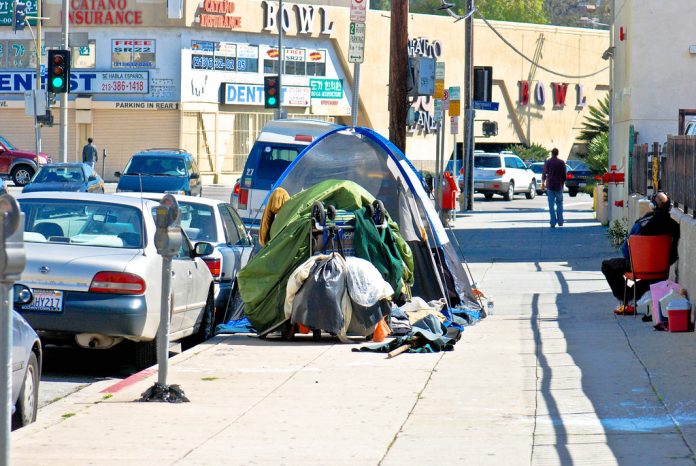If simply throwing money at a problem worked, then all of our problems would have been solved many years ago. Sadly, for lawmakers, simply spending does not produce results—you, at the very least, need accountability too.
In a state where you are more likely to step in human waste than dog waste, in a state where business after business is shut down due to crime, and in a state where permissive attitudes have led to drug related activity so extreme that it has become a public health emergency, California Governor Gavin Newsom has once again chosen not to hold progressive programs accountable when they have clearly failed.
Newsom recently vetoed AB 2570, a bill that would have required the California Department of Housing and Community Development to conduct yearly audits of the Homeless Housing Assistance Program. Newsom claims that requiring audits to be conducted by government auditors would be redundant, and instead will rely on the program to self-report. This is like putting a mouse in charge of keeping track of cheese.
A little redundancy is necessary to find out where the money funneled into these programs is going. California already has the highest share of unsheltered homeless individuals in the nation and between 2022 and 2023 the number has only increased. In December 2023, the estimated homeless population was found to be over 180,000 people.
The method used to reach this estimate is known as a Point in Time, or PIT, Count, which is conducted by volunteers counting visible homeless on one particular day. This method has led to large discrepancies in reporting, often undercounting the number of homeless in an area on any given day.
The PIT Count is a snapshot—it would be like taking a picture of a specific highway during the morning work commute, counting the cars, and then saying that the number of cars on the highway at that time represents the total number of cars in a city.
The problem California is facing is just a microcosm of the wider homeless problem America is facing. In 2013, Barak Obama began focusing government efforts on funding publicly subsidized housing. Housing First, as it is known, was lauded as the policy that would end homelessness in 10 years. It has been more than 10 years now, and the number of people living without homes has only gone up.

America has been hamstrung by this policy because it tries to outspend a problem instead of addressing the root causes. Under Housing First, programs that receive federal funds are prohibited from requiring people seeking publicly subsidized housing to commit to treatment for drug abuse or mental health issues.
This has created a system of perpetual homelessness. As long as these programs receive hundreds of millions of dollars and remain accountable only to themselves, there exists very little incentive to fully rectify the problem.
In government, sunlight is the best disinfectant. The reluctance to changing federal policy regarding homelessness cannot withstand the evidence of its failure. State legislatures should reject the example set by D.C. progressives and California leftists and demand accountability.
For more Budget & Tax News.
Originally published by the Texas Public Policy Foundation. Republished with permission.











